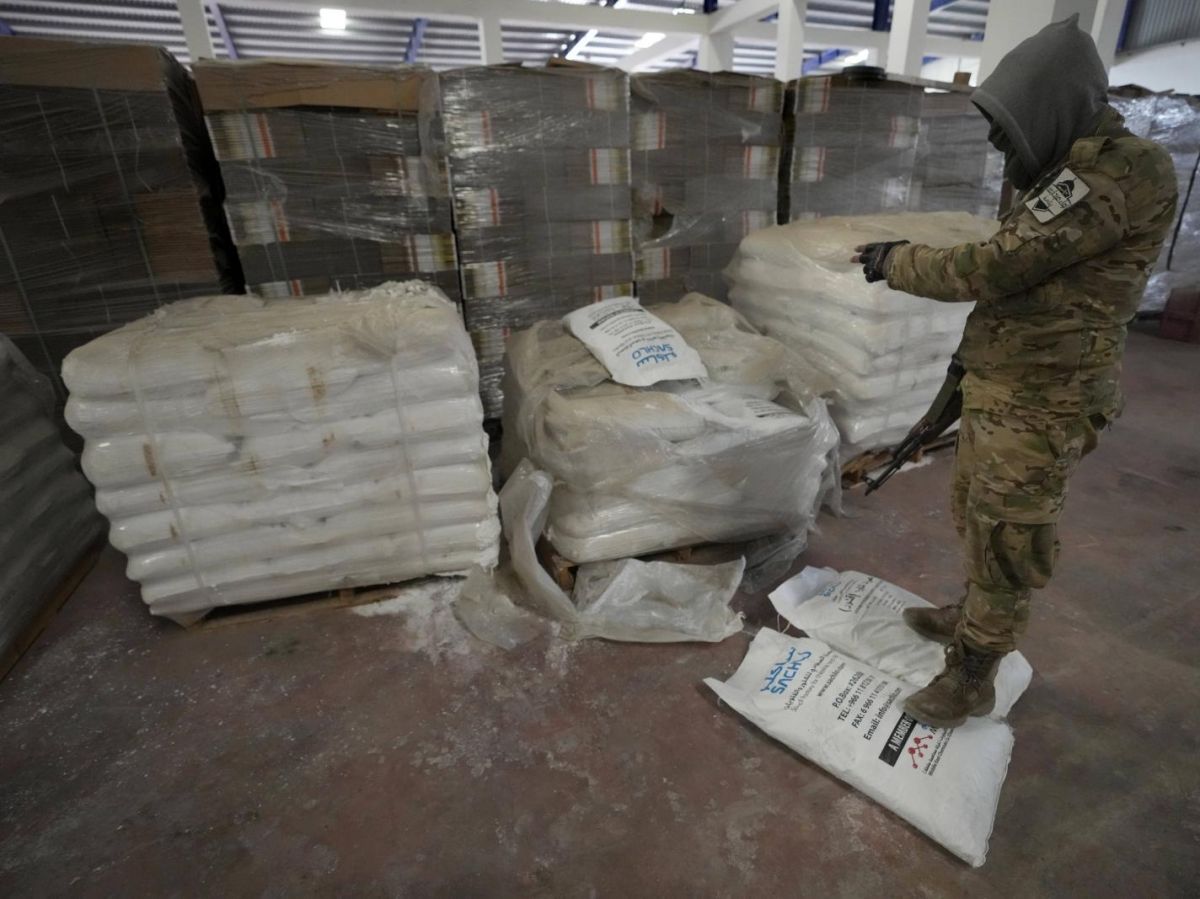December 8, 2024, marked a turning point in the history of Syria. President Bashar al-Assad, who had ruled the country since July 17, 2000, was overthrown by the radical Islamist group Hayat Tahir al-Sham (known as HTC or HTS). The leader of the rebel group, Abu Mohammed al-Joulani, declared in Damascus, the capital of Syria, that the former president had " sows sectarianism and captagonism"Indeed, since the fall of Bashar al-Assad, numerous laboratories producing captagon have been discovered by the HTC group in Syria, particularly in Damascus. Thousands of small white pills, ready for shipping and trade, have been found in bags, fake fruit, and even fake electrical boxes.
Captagon, a drug originally
Captagon wasn't originally a drug. It was originally marketed in Germany in the 1960s. A derivative of fenethylline, it was thought to help people with attention deficit disorder, with or without hyperactivity, depression, or narcolepsy. However, fenethylline is a stimulant belonging to the same family as amphetamines, which is why the United Nations placed it on its blacklist of psychotropic drugs in 1986.
Fenethylline is known, among other things, for its many effects. The drug affects certain neurotransmitters, molecules that allow neurons to communicate with each other and allow neurons to communicate with muscles, thus increasing the brain's efficiency. This process leads to increased alertness and concentration, as well as a suppression of feelings of hunger and fatigue. In addition, captagon induces euphoria, or a feeling of omnipotence and well-being. These sensations are caused by the release of dopamine, a hormone involved in feelings of pleasure and reward.
Captagon is also used for its increased physical performance. Indeed, this drug increases the amount of glucose released, allowing for increased muscle power. Furthermore, captagon dilates the bronchial vessels, allowing for better breathing. It also increases body temperature and heart rate. This is why the illegal trade in captagon—which is no longer really a captagon, since it has become a synthetic drug, but which still retains its name—flourished in the 1990s.
However, captagon has many harmful effects, especially when it is regularly consumed over long periods, particularly on the heart, since its use can lead to Heart attack of the myocardium, but also irregular heartbeats or even cardiac toxicity (i.e., heart damage due to the presence of toxins in the heart). This drug can also cause severe depression, insomnia or even malnutrition. In addition, captagon can sometimes cause breathing difficulties, feelings of dizziness, muscle pain and cramps as well as confusion or even irritability and unstable mood. Finally, this drug can obviously cause addiction. Indeed, people using it may continue to seek the effects it produces on them and thus increase their doses and intake.
Captagon, a drug that is plaguing Syria
It was precisely in the 1990s that Bulgaria became a major producer of the small white pill marked with two half-moons. However, when the country joined the European Union (EU) in the 2000s, more precisely in 2007, production had to be exported in order to comply with EU regulations. Thus, captagon production was exported to Lebanon and Syria, according to the French Observatory of Drugs and Addictive Trends (OFDT). As time passed and production expanded, captagon wreaked more and more havoc on the Arabian Peninsula, particularly in Saudi Arabia, the country where the largest consumers of this drug are found.
Read also What is captagon, nicknamed the "jihadist drug"?
However, the story of captagon production in Syria is even darker than that. Between hidden laboratories, military bases, Hezbollah, and the presidency, the country is plagued by captagon. Indeed, drug trafficking in Syria has reportedly been organized by Bashar al-Assad's family since the start of the civil war in 2011. Since the beginning of this civil war, the many warring parties have relied on drug trafficking, especially captagon, to finance themselves and acquire weapons. Thus, in 2018, when Bashar al-Assad recaptured most of the country, he also took over the captagon production laboratories.
Numerous attempts to eradicate the scourge
Thus, the trafficking and production of captagon have been "poisoning" Syria and other surrounding countries for many years. This is why in 2022 the United States adopted the "Captagon Act", in order to denounce the situation and develop a "strategy aimed at disrupting and dismantling the production and trafficking of narcotics and the affiliated networks linked to the Bashar al-Assad regime".
Read also Syria: After years of war, the long reconstruction of the Damascus orchard
The League of Arab States, a regional organization comprising 22 Arab countries and holding observer status at the United Nations (UN), has also attempted to halt captagon trafficking. Indeed, at its summit in May 2023, it invited President Bashar al-Assad for the first time since the start of the civil war. The goal was to ask him to eradicate captagon production in the country.

